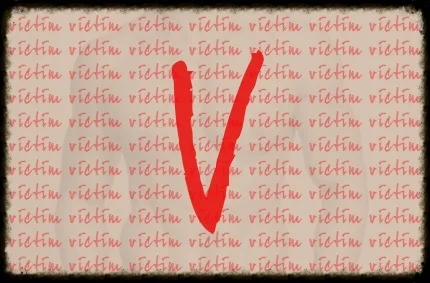V is for...
“We must picture hell as a state where everyone is perpetually concerned about his own dignity and advancement and where everyone has a grievance”
Taking a look around us today, it would appear that C S Lewis' concept of hell is alive and well here on earth. Consider the people you meet regularly, or whom you work with or interact with on an almost daily basis - gracious behavior is in short supply, while selfish entitlement is depressingly common. When people are quick to judge themselves to be right and blame others as being wrong, victimhood thrives.
Victims are the powerless and the oppressed - while this is still objectively true (just look around you), within the realm of therapy and counselling, victimhood can be a perverse form of empowerment.
There are many people who rightfully feel traumatized and victimized by others - but there are some who seem to latch on to the slightest provocation in order to dramatize their suffering for maximum attention. By turning a slight into a badge of honor, these victims 'earn' their right to feel aggrieved, to be sorry for themselves, and to ensure that everyone else knows exactly how bad they feel and sympathize with their plight. From this perspective, there is little to no room for empathy for others, which then permits a cycle of complaint and depression - life is hell while living this reality. In a way, C S Lewis described a persecution complex, where self trumps all and every obstacle in life is a personal affront.
I want to be clear that this pattern is almost always perpetuated unconsciously, without malice nor intent, which makes the entire process even more enervating for the individual caught therein because they honestly cannot understand why they are constantly embattled. Shifting perspectives can feel impossible because, despite everything, victimhood serves the victim well in many ways. It is when the individual feels this survival strategy is no longer working that change becomes possible - and only with time and patience can there be hope for meaningful change.

